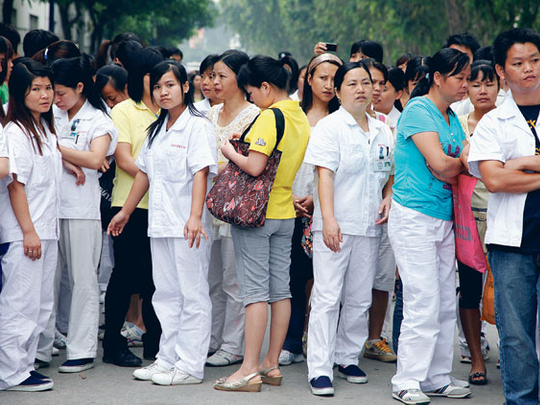
Tokyo: Striking workers at a Honda Motor Company parts maker in southern China agreed to return to work yesterday, the Japanese automaker said, ending the latest in a series of conflicts over wages and conditions at foreign-owned plants in the world's biggest export economy.
The strike at Honda Lock (Guangdong) Company has ended and production in China wasn't affected, said Beijing-based Honda spokesman Zhu Linjie. Zhu said he had no details on when the strikers would return or what they were offered.
Employees at Honda Lock, which supplies exhaust parts for Honda's Accord, Fit and Odyssey, walked out demanding pay increases after hearing salaries were raised to end a strike at Foshan Fengfu Autoparts Company, a separate Honda parts plant.
Depressed
"The workers heard about the situation at the Foshan plant," Liu Shengqi, one of the strike leaders.
"We all work for the same company, so that creates a very depressing situation here."
Disruptions at overseas manufacturers including Honda and Taiwan's Foxconn Technology Group reflect pressure for higher pay in China, where a shrinking pool of low-cost labour may boost consumption and inflation, according to Huang Yiping, former chief Asia economist at Citigroup.
Foxconn said last week it will double salaries for its lowest-paid workers.
The striking employees at Honda Lock were demanding a 72 per cent increase to 1,600 yuan (Dh860) a month and higher overtime wages, the company said on June 10.
The company supplies key systems, door handles and sensors for Honda's Chinese autoplants.
Last month, Honda agreed to raise salaries 24 per cent at another parts maker to end a walkout that shut production at all four of its Chinese assembly plants, the first time labour issues forced Honda to halt local output.
"Manufacturers probably incorporated these risks when they started business in China and probably expected costs to rise," said Yoshihiro Okumura, who helps manage the equivalent of $365 million at Chiba-gin Asset Management in Tokyo.












